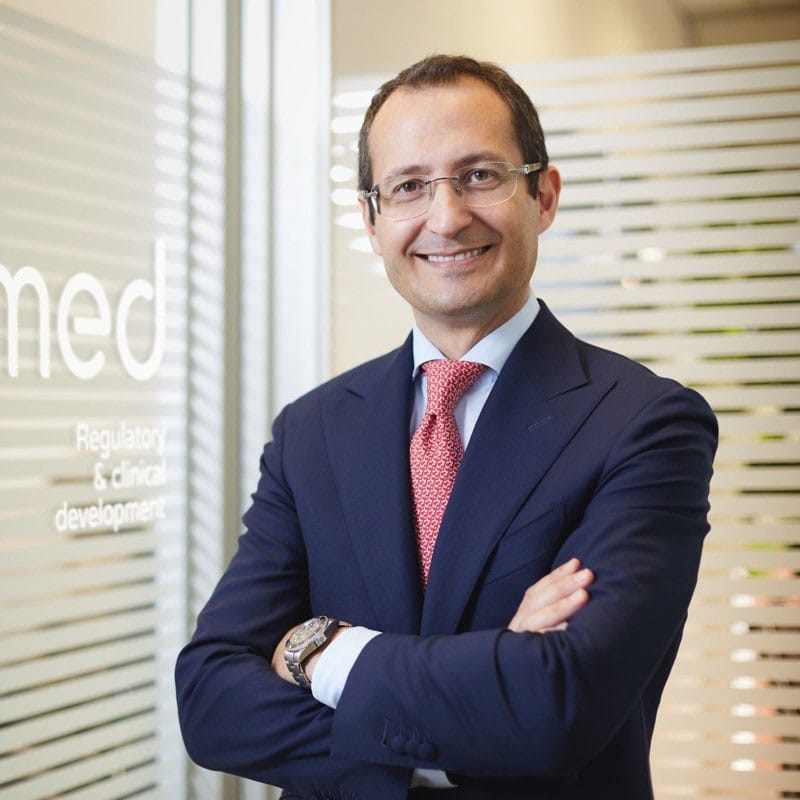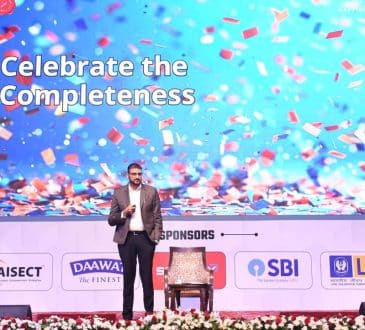Healthy bites: interviewing Enrico Perfler, Founder at 1MED

Given the relevance of the intersection between health and tech, we decided to speak to Enrico Perfler, Founder at 1 MED, a company born in 2014 and based in Switzerland. Perfler is a serial entrepreneur and a former university professor, who decided to create a different Contract Research Organization (CRO), with a focus on medical devices and now pharmaceuticals. “Our approach wants to be proactive, and it is based on deep tech and a world-class knowledge of global regulations, across the EU and the US. We are a SME, with 150 employees, double digit growth in yearly revenues and we are focused on innovation for big pharma and health-tech scaleups,” says Perfler. The goal of 1 MED is to make pharma supply chains more efficient.
The usual innovation ritual, if we think of a standard medical device, is to start with clinical studies, and then move on to a long protocol of small and larger tests on humans, before getting EU or FDA (US) approval, followed by launch and large-scale production.
The initial investment is massive. Once clearance is given to a specific medical device, the go to market machine needs to scale fast, to deliver the return on investment that all stakeholders expect. Feedback on the product per se is usually collected through questionnaires, with scarce incentives and low redemption rates. Risks are higher for B2C propositions, and crises are always handled ex-post, with the usual long tail of legal proceedings and risk of class actions coming back to haunt manufacturers. “We don’t have a continuous loop of real-life evidence of how our products are being used in the real world. That would be essential to help us improve what we do, minimizing risks on all sides, from manufacturer to the final users,” affirms Perfler.
New news is that 1MED is working, together with strategic partners, like Circular, a fourth-generation layer-one blockchain, which also uses AI under its hood, on a system that will collect data in hospitals, to get field data linked to its devices. “We want all data, about the tools, the physicians, the practitioners, the patients. We want the data from the good doctors and the bad ones, or from the top guns and the cargo pilots, to use a metaphor. Enough and varied evidence will help us understand and act accordingly.
All medical records are already digitized. AI can sift through the data, previously anonymized, and help us understand what doesn’t work and how tools, devices and pharmaceuticals can be improved, or if there are other factors driving deviations from plans, like human mistakes. Smart contracts (on blockchain) can redistribute the rewards across employees of medical organizations and patients, as health care organizations would be willing to pay for that chest of gold data,” concludes Perfler.
This is something that is already at reach, as Anima Anandkumar and her co-authors have shown, by using AI to make sense of usage data and insight, with the goal to design anti-infection catheters, which make the manufacturers more trustworthy, their products better, their returns lower, their customer care more effective, and so forth. It’s happening.
The importance of streamlining the collection and refinery of medical data for better R&D and innovation, with the goal of having a more efficient, effective and personalized medicine is also at the heart of a couple of test cases led by the Life Sciences Cluster Basel, which show exactly the benefits of a data based approach for the full chain that goes from patients to manufacturers, passing through hospitals and practitioners. “Just the time saved on inputting data would be immense, let alone their usage for innovation or the broader public good. It’s early days, but there is the shared feeling that healthcare data have social status and the potential to do good to the entire community.
So, we need guidelines on how to protect it and share it safely with all actors, while making sure the entire community gains from the process,” says Philippe Hofstetter, Project Manager at the Life Science Cluster Basel. Sharing data becomes so vital for the future of healthcare, that the scenario of not sharing it publicly could represent a burden and stifle innovation. Would regional industrial champions like that? Would governments allow it? There is plenty of evidence that taking action is the way to go.
In this vision, everyone has the tangible, monetary incentive to comply. Blockchain would guarantee privacy and transparency, while AI would make sense of the numbers and proactively generate recommendations for action, in fractions of a second. Ownership of the data would sit with hospitals or laboratories, and a piece of the pie would go to employees and patients, as well. As shown here above, we have inverted the funnel, and the innovation process starts from the jungle, from the network using tools and devices. Innovation would always start with hard facts and market evidence, making the testing phase more efficient and informed.
The person is at the center of the whole equation. The true advantage of 1MED, to go back to the initial use case of this section, is their expertise and brand, as much as the strength of the network of available data and stakeholders; all parties would have the vested interest to increase their mutual social capital. Healthcare needs devices that go beyond their mere function, be it collecting humans’ fluids, for example (‘meta’ in ‘meta-product’ is, indeed, Greek for ‘beyond’), plus it requires a healthy dose of tech and data. 1MED and Mr. Perfler are already working on it.
Have you read?
Best CEOs. Best Companies. Richest People (Billionaires). Richest Women (Billionaires). Richest in Each Country (Billionaires).
Bring the best of the CEOWORLD magazine's global journalism to audiences in the United States and around the world. - Add CEOWORLD magazine to your Google News feed.
Follow CEOWORLD magazine headlines on: Google News, LinkedIn, Twitter, and Facebook.
Copyright 2025 The CEOWORLD magazine. All rights reserved. This material (and any extract from it) must not be copied, redistributed or placed on any website, without CEOWORLD magazine' prior written consent. For media queries, please contact: info@ceoworld.biz








